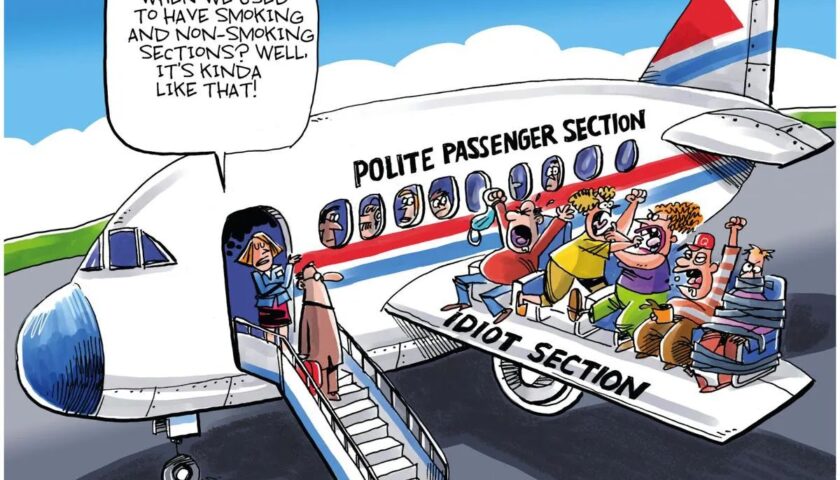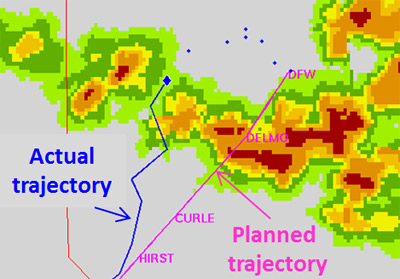There is growing concern from airlines, governments and passengers at the increasing frequency and severity of unruly passenger that includes assault of other passengers or crew, sexual abuse or harassment, abusive consumption of alcohol and/or narcotics, refusal to comply with safety instructions, making threats that could affect the safety and security of the crew, passengers and aircraft, and other types of disorderly behaviour that impact good order and discipline on board. Though committed by a minority of passengers, unruly incidents have a disproportionate impact like interference with crew performance and/or threaten the safety and security of a flight and may result in aircraft delays and/or diversion. Because they require unplanned landings, these diversions create additional safety and security risks as well as costs for the airlines. Despite all the noise in media and growing concern, such offences often go unpunished due to loopholes in existing international or national law.
What is more worrying is lukewarm response from the authorities. In many cases, unruly passengers had already shown distinctive or deviant behaviour during the period before boarding an aircraft, no appropriate actions are taken on the ground and the unruly passenger is allowed to board the aircraft. It is also a fact that, unruly passengers rarely face prosecution or other legal or economic sanction because of jurisdictional issues.

Preventive Steps
At the 70th IATA AGM in June 2014, the aviation industry unanimously adopted a “set of core principles” for dealing with the issue of unruly passenger behaviour. To support these principles, IATA published a high level document “Even safer and more enjoyable air travel for all – A strategy for reducing the problem of unruly and disruptive passenger incidents“, that uses examples of good practice to illustrate the practical steps that must be taken to significantly reduce the problem of unruly and disruptive passengers. It suggested guideline for governments, airlines and airports to:
- Communicate the types of prohibited conduct onboard aircraft and the legal and other consequences of such conduct.
- To ratify Montreal Protocol 2014, thereby removing barriers to prosecution/enforcement action.
- To review the types of enforcement measures that are in place, consistent with the severity of the incident, including civil and administrative penalties such as fines that can be issued to ensure there are consequences to such behaviour as per ICAO Doc.10117.
- To support the work of airlines and other industry stakeholders to prevent unruly and disruptive passenger incidents.
To assist member airlines in prevention and management of unruly passenger incidents, IATA has developed extensive guidance and training, for example in de-escalation techniques and the responsible service of alcohol during flights.
IATA is also working with airports, duty-free retailers and other groups to ensure the responsible sales and marketing of alcohol to avoid unruly passenger incidents resulting from intoxication. In addition, IATA is participating in public awareness campaigns that encourage responsible consumption of alcohol before traveling by air. For example, Fly Safely, Drink Responsibly in Norway, One Too Many in the UK, and the #notonmyflight campaign launched by the European Union Aviation Safety Agency (EASA).

Legal Framework
Airlines do develop and enforce their own boarding and service policies and some airlines use their own policies within the existing legislative framework to reduce and deter drunk, disruptive passengers. But as we see, the cases are in rise and there is a requirement of legal framework to punish and enforce sanction on unruly passengers.
Prevention and deterrence relies on uniform international law to ensure that States have the necessary legal tools to be able to enforce criminal or other sanctions as appropriate, so that unruly passengers are held accountable for their misconduct. Lack of jurisdiction is the main reason for failure to prosecute unruly passengers at foreign destinations. In other cases, some countries lack specific provisions in their relevant laws to allow for the arrest and prosecution of unruly passengers even when jurisdiction is not an issue.
Shartfalls in the Tokyo Convention 1963 (TC 63)
TC63 grants jurisdiction over offenses and other acts committed on board aircraft to the State of registration of the aircraft in question. This causes issues when the Aircraft Commander delivers or disembarks an unruly passenger to the competent authorities who may determine that they do not have jurisdiction (as the State of landing) when the aircraft is registered in another State. Likewise, the police and authorities of the State of registration may have little connection with an incident taking place in another country. The result is that the unruly passengers are often released and allowed to continue their journey without facing any sanctions for their misconduct. ICAO recognised the gaps in jurisdiction and clarity on offence and proposed an amendment via new protocol.
Montreal Protocol 2014 (MP14)
The MP14, was adopted on 4 Apr 2014, amends the Tokyo Convention to provide States with a clearer jurisdictional framework for dealing with unruly passengers, paving way for prosecution discretion. The Protocol expands the grounds of jurisdiction by recognizing, under certain conditions, the competence of the State of landing and the State of the operator to exercise jurisdiction over offences and acts on board aircraft. The establishment of such jurisdiction over offences is mandatory if the criteria set out in the Protocol are met. The Protocol extends legal recognition and certain protections to in-flight security officers. It also contains provisions addressing such issues as coordination among States, due process and fair treatment, and the right to seek recovery under national law. The Montréal Protocol is the result of collective efforts by the international community to expand the scope of the Tokyo Convention to enable States other than the State of registration to exercise jurisdiction over unruly passengers. By expanding the scope of jurisdiction on a mandatory basis, it will strengthen the capacity of States to curb the escalation of the severity and frequency of unruly behavior on board aircraft. The Protocol also recognizes the desire of many States to assist each other in curbing unruly behavior and restoring good order and discipline on board aircraft.
Indian Laws
Can the passengers indulging in unruly behaviour on board International flight, such as recent incidents on Lufthansa, Thai Smile or Air India be brought to book in India. The Article 4 of the Montreal Protocol of 2014 to the Tokyo Convention of 1963 gives the state where the aircraft lands jurisdiction over the offender, where the offence has been committed after embarkation and closing of aircraft doors. India is a signatory to Article 4 of the Montreal Protocol, 2014, to the Tokyo Convention, however it is yet to ratify it, while Thailand is yet to sign it. So in all the cases above, the state of registry of aircraft will have jurisdiction. India as the world’s fastest-growing aviation market, needs to take a serious view of such unruly behaviour and follow it with jurisdiction. This will allow CISF/police to prosecute all cases of unruly passenger. In the UK there is a maximum sentence of two years in prison or a fine of £5,000 for drunkenness on an aircraft, with the maximum sentence increasing to five years in cases where the safety of aircraft or passengers has been put at risk. In addition to the fine, passengers can be made to pay the costs of diversion, which can be up to £80,000.
Just a few months back, in cases relating to unruly passenger; Pilot In command and Cabin Supervisor had to file an FIR at the nearest police station. And subsequently they were required to make several visits to court and police station for prosecuting the unruly passenger. However, as per suggestions by Parliamentary Committee a ‘special airline wing’ should be formed for dealing with police and courts in cases of unruly passengers. This will prevent inconvenient visits of victims of unruly passenger and flight crew to court and police station. Indian regulator DGCA has formulated a Zero tolerance policy for incidents related to unruly passengers and strict implementation of No-fly list. DGCA has also issued CAR Section 3, Series M, Part VI on this. But these rules apply to all Indian aircraft operators, airport operators within the Indian territory and passengers during their air travel over the Indian airspace.
Conclusion
Whatever the reasons for the rising number of unruly passengers are, this kind of behaviour on a commercial flight is intolerable, where safety and order must be maintained at the highest level. Everyone will agree that in-flight unruly behaviour should be – first and foremost – prevented and preferably so on the ground before boarding an aircraft or – failing that – appropriately prosecuted and punished.
- India should adopt the Montreal Protocol 2014. By making the consequences of unruly behaviour clear and enforceable, MP14 will provide a more effective deterrent tool against unruly passengers.
- Furthermore, campaigns should be developed at the appropriate level to inform the public and the aviation professionals about the importance of prevention, and prosecution of unruly behaviours onboard of aircraft and to provide adequate training to all persons involved..
In my opinion, both operational/preventive measures and the regulatory provisions of MP14 are necessary to adequately tackle the problem of unruly passenger.
Looking forward to decrease in the number of unruly passenger incidents and a more pleasant air travel experience for all.
Jai Hind.



